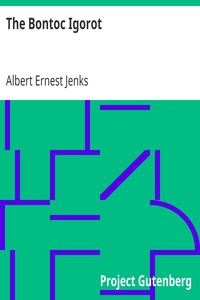| Summary |
"The Bontoc Igorot" by Albert Ernest Jenks is a scientific publication written in the early 20th century, specifically in the context of American colonialism in the Philippines. This ethnological study focuses on the Bontoc Igorot people, a group from northern Luzon, and examines their culture, social organization, and physical characteristics. The work provides detailed insights into their way of life, agricultural practices, religious beliefs, and social structures. The opening of the book sets the stage for Jenks’ ethnographic exploration, beginning with a letter of transmittal to the Department of the Interior and a preface that outlines his expedition and residence among the Igorot during 1903. Jenks describes the Indigenous community as industrious and clean-limbed, with traits typical of primitive mountain agriculturists. He highlights the Igorot's adherence to animism and a unique social structure devoid of slavery, mentioning their notable practice of head-hunting as a form of recreation. The introduction provides a geographical backdrop for the Igorot population, framing their cultural context within the broader Philippine Archipelago. Overall, the opening establishes both a personal connection and a scholarly intent to document a way of life that exists at the intersection of tradition and the encroachment of modernity. (This is an automatically generated summary.)
|

